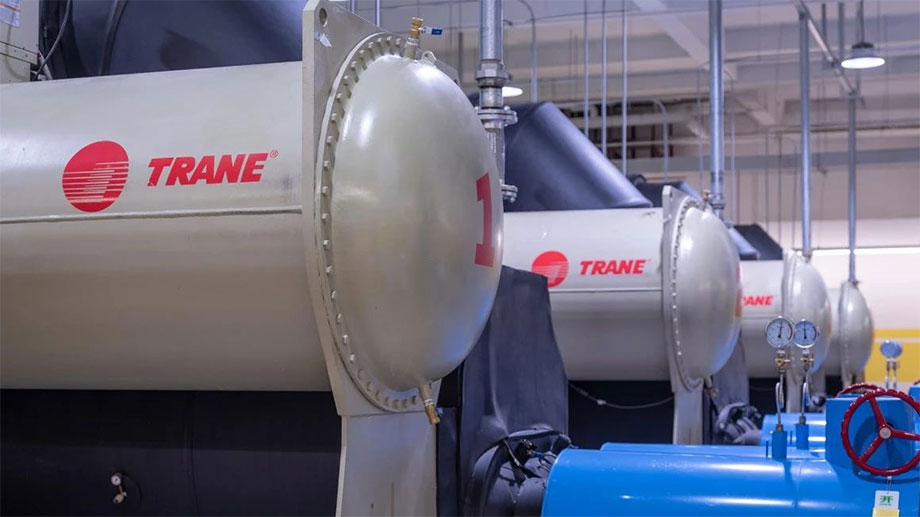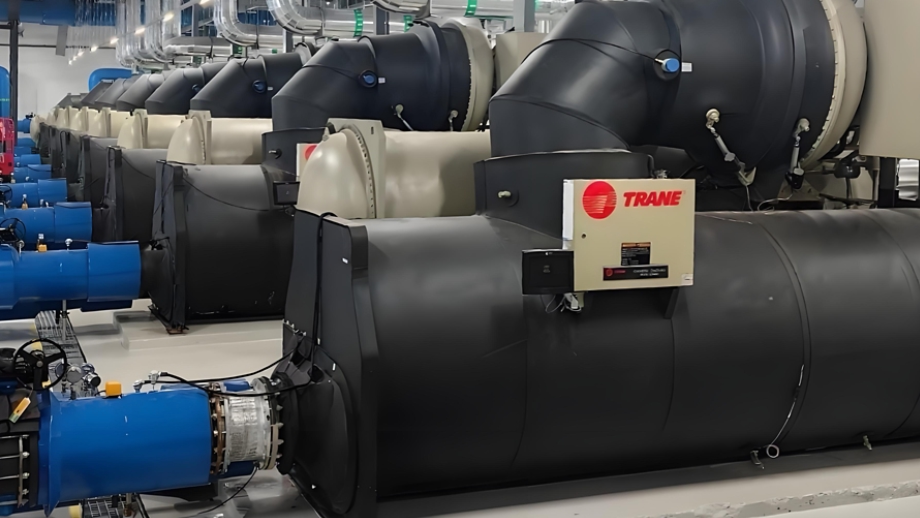In the spirit of the COP 30 Presidency’s call for a global mutirão – a collective effort to mobilize climate action – the Business Council for Sustainable Energy (BCSE) will lead a business delegation to COP 30 in Belém, Brazil that will bring forward credible solutions, partnerships, investments, and ideas to accelerate the energy transition and decarbonize agriculture, buildings, industry, and transportation. This case study is part of BCSE’s Granary of Solutions to deliver emissions reductions, increase resilience, and meet energy transition goals worldwide.
Highlights:
- Installation of energy-efficient chillers can reduce energy demand by 8-15% at 12 electric vehicle factories in China
- Progress in innovative carbon reduction technologies, including thermal management systems and renewable energy and industrial electrification solutions
- Energy-efficient technologies save energy and reduce CO2 emissions, supporting the deployment of electric vehicles and China’s zero-carbon transition
Case Study:
Trane Technologies has supplied high-efficiency climate control products and solutions to Geely Auto Group for nearly a decade, steadily shifting operations at their 12 production sites to a zero-carbon intelligent manufacturing model.

Trane equipment in a Geely manufacturing plant in China.
High efficiency of electric vehicle production
Based in Hangzhou, Geely is one of China’s top auto manufacturers. It supplies the Chinese economy with cutting-edge new energy vehicles (NEVs).
“Over the last several years, we have supplied many of the best-known Chinese automotive companies with our climate control systems,” said Steve Yan, Vice President, Trane China. “Geely is our largest customer in the NEV space, and we have been happy to support their transition to more cost-effective and efficient operations with our high-efficiency solutions.”
To date, Trane has supplied leading-edge chiller technology to most of Geely’s battery production facilities, including high-efficiency inverter centrifugal chillers that can improve plant energy efficiency by between 8 and 15 percent.
“NEVs already go a long way to reducing atmospheric carbon, said Yan. “However, with these innovations and manufacturing upgrades, Geely will be able to make reductions in multiple dimensions and solidify its position as the automotive industry’s sustainability leader.”
Supporting Geely’s energy and sustainability goals
Trane’s high-efficiency air conditioning units are capable of operating continuously year-round in Geely’s NEV plants, meeting the stringent humidity requirements of the battery and cell workshops, while also accelerating Geely’s zero-carbon transition. Significant progress has also been made in innovative carbon reduction technologies, including innovative thermal management systems and renewable energy and industrial electrification technologies, which will continue to help China’s NEV ecosystem accelerate their zero-carbon transition. In recognition of these achievements, Trane was designated an outstanding vendor by Geely.

